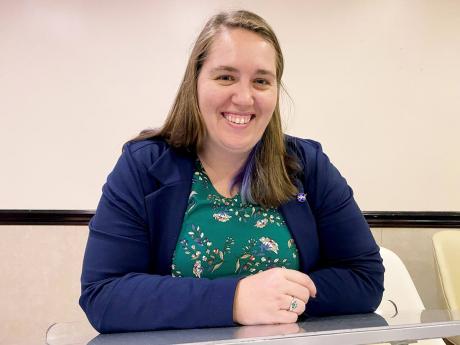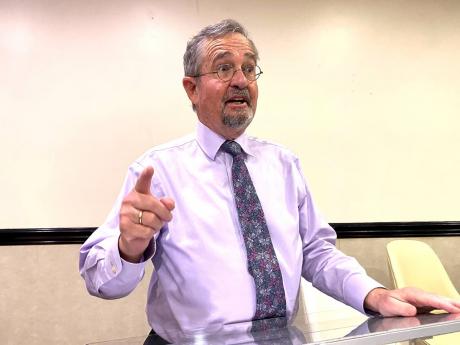Researchers call for insurance cushion for women farmers
The Government and private sector are being urged to partner on asset-building programmes and index-based agricultural and livestock insurance for Jamaicans, especially women.
Index-based agricultural and livestock insurance is said to be a promising tool for managing some key risks that agricultural and pastoral families face.
Many insurance products are designed and marketed around activities that are traditionally considered to be under the purview of men.
Evidence also shows that when shocks occur – even those that predominantly impact male-dominated activities – it is women who bear the burden.
The call came from foreign researchers Michael Carter and Emily Adams, who were presenters at the International Insurance Conference held on Thursday at The Jamaica Pegasus hotel in New Kingston.
Carter, a University of California professor of agricultural and resource economics, believes Jamaicans, especially women, are at a disadvantage in the agricultural sector and need more index-based insurance.
“It’s one thing helping somebody move ahead, knowing that they are going to fall right back to where they were within a couple of years. Let’s try to make a more permanent kind of change,” Carter, who has been conducting research on small farmers and risk for 35 years, told The Gleaner.
Carter, who has also done studies on poverty dynamics, believes more instruments should be made available to poor people globally so that they can engineer their own economic advancement.
“The first paper I read quite some years ago was called ‘Can’t Get Ahead For Falling Behind?’, so the idea was if you’re trying to advance economically, but you’re constantly hit by shocks, then it becomes very difficult to get ahead, so it’s that kind of thinking that got me interested, particularly in thinking about tools like insurance that help people manage shocks,” he explained.
Carter is part of a team wrapping up a five-year analysis of a programme in Kenya, where they have found that a “one-time push helps people improve their living standards by 25 to 30 per cent”.
“Those kinds of programmes have often been found, if studied carefully, to be very effective … . It’s really quite a substantial change in people’s lives from a one-off intervention,” the researcher noted.
“One of things that we’ve noticed is, depending on where you are, if you can facilitate people moving ahead, but if, in fact, they’re constantly being hit by shocks – by droughts or floods or whatever it may be – they can easily fall back to where they were,” he said.
Emily Adams, Eastern and Southern Africa science coordination lead, whose area of expertise is mostly in index-based insurance in Southern Africa, believes her work may be applicable globally.
She said some of the main takeaways is that “you shouldn’t just be making assumptions that your products are helpful to everyone; that a lot of times building a product – whether insurance or otherwise – may be leaving people behind”.
“ ... So my work, broadly speaking, is to break that bias of assumption and really figure out what women and different types of other maybe minority groups need in order to be more empowered, more successful, have better relationships with the environment, things like that,” Adams told The Gleaner.
“Women in Eastern and Southern Africa tend to be very active participants in the agricultural sector, but for many different reasons, [rather] than traditional agricultural practice of growing something to take into market, they’re growing crops for their families; maybe trading with people in their villages, but not actively selling off tonnes and tonnes of whatever they’re growing,” said Adams.
“So I want to help to make sure that those women are also protected by insurance and that if they face losses or suffer droughts or floods or other catastrophes, that doesn’t affect the ability for them to feed their families.”
Carter and Adams made presentations at a parallel session targeting index-based insurance to protect women’s assets. This session examined how people globally should envision gender-sensitive inclusive insurance so that women may also reap the rewards of such protection.
A roundtable discussion followed that focused on several initiatives being conducted in Africa that showcase innovative ways to rethink insurance, which not only speak to women as an immense emerging market, but to truly make insurance an effective tool for protecting their families from shocks.



